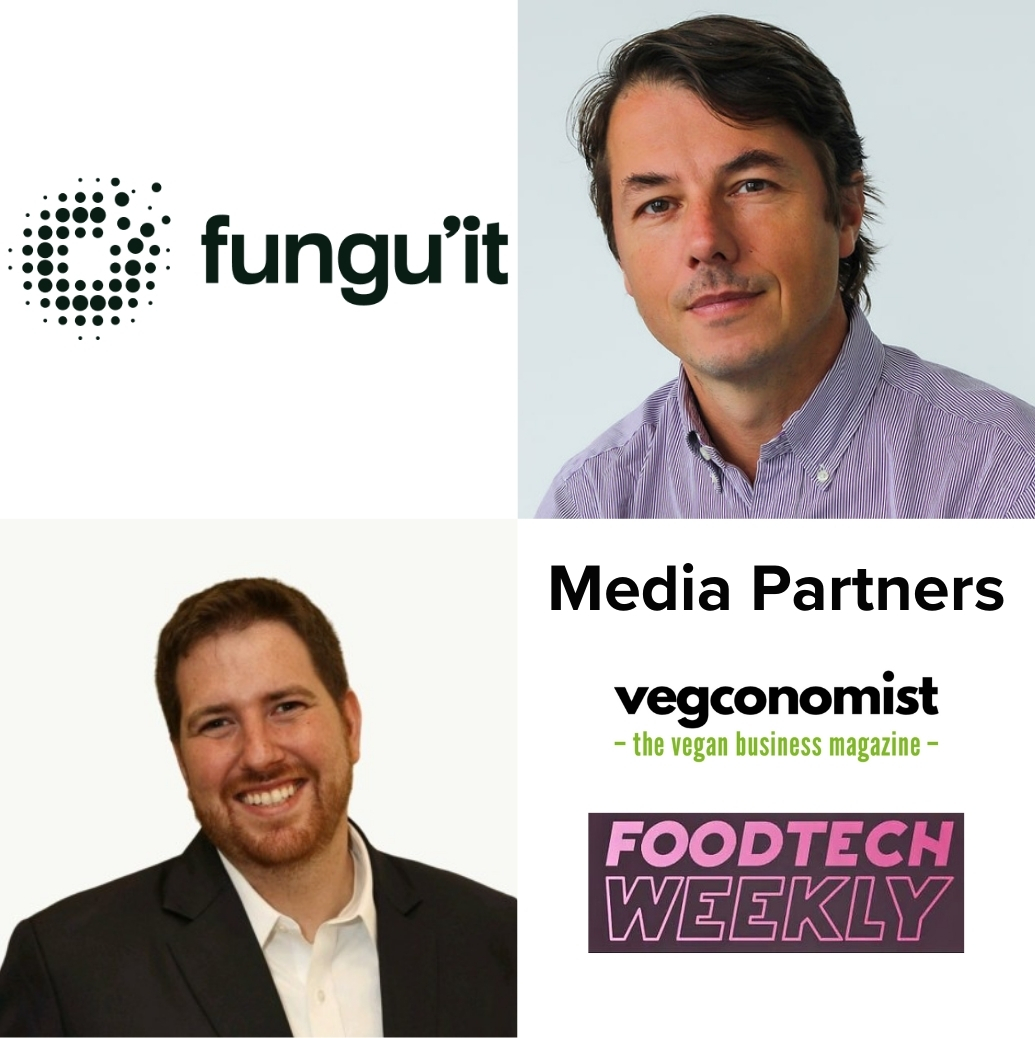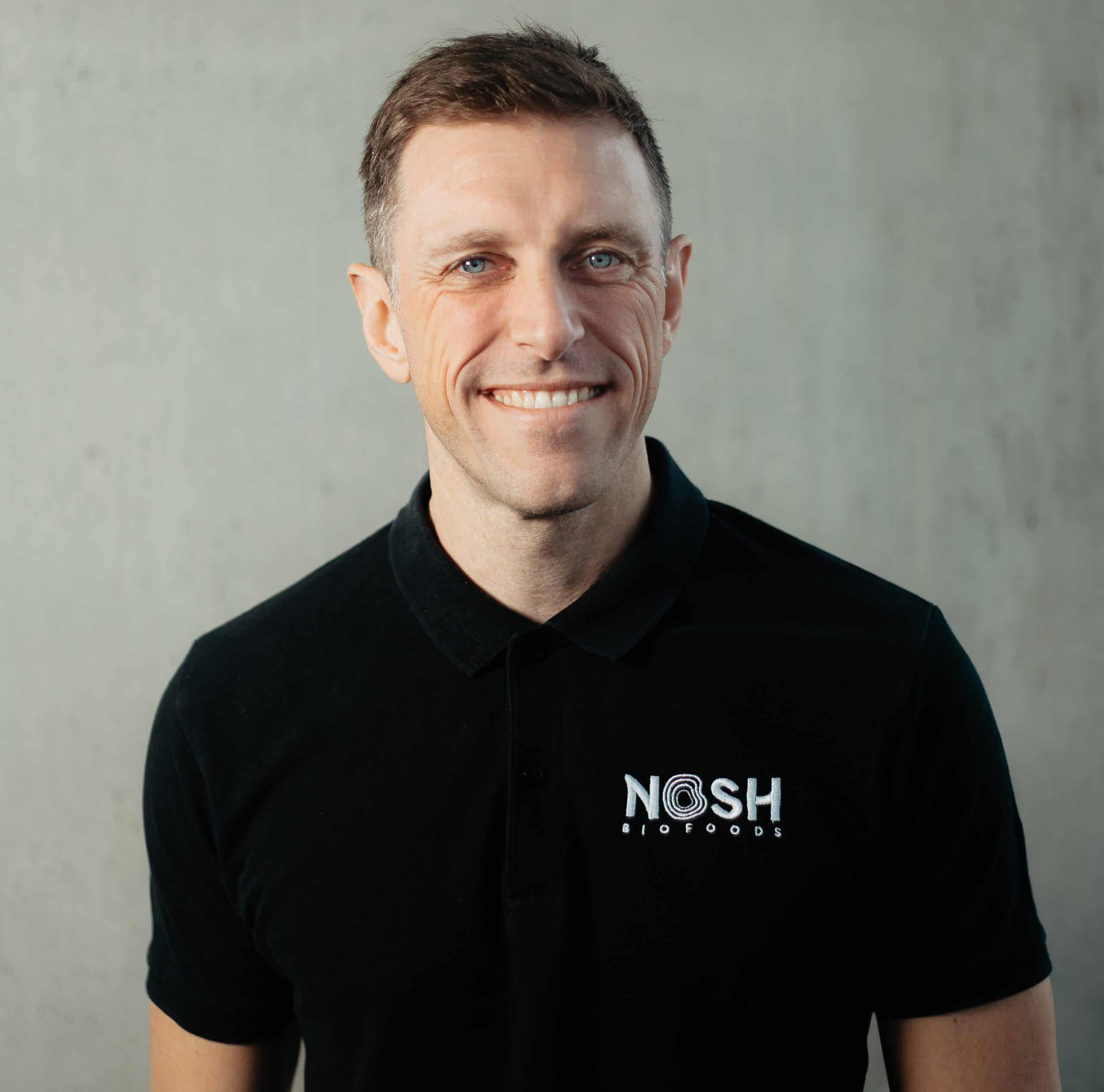In this podcast series, Alex Shandrovsky interviews investors about benchmarks for funding Alt Proteins in 2025 and uncovers the investment playbooks of successful Climate Tech CEOs and Leading VCs.
Podcast Host Alex Shandrovksy is a strategic advisor to numerous global food tech accelerators and companies, including alternative proteins and cellular agriculture leaders. His focus is on investor relations and post-raise scale for agrifood tech companies. This podcast is syndicated through our media partners, Foodtech Weekly and Vegconomist.
Episode 46: Fungu’it
This episode features Cyrille Viossat, COO and CTO of Fungu’it, a pioneering French startup dedicated to creating sustainable, natural aromatic ingredients through circular economy practices using filamentous fungi. Cyrille discusses their recent €1.5M seed funding, strategic focus on market validation with early paying customers, and the importance of aligning with impact-driven investors like Asterion Ventures.
He shares insights into building a strong team, navigating the fundraising process over 12 months, leveraging government grants and debt, and exploring exit strategies, including potential acquisitions. Cyrille emphasizes the value of balancing personal life with entrepreneurial ambition and highlights how community support and market traction are now more critical than patents in this fast-moving space.
Key Facts Fungu’it:
- Goal: To make meat that’s better for the planet, animals, and public health.
- Recently raised €4 million led by Asterion Ventures, with participation from Evolem and UI Investissement via Oser BFC.
Alex’s Top Findings:
- France Advantage: Non-dilutive funding, public infrastructure, and leverage. Significant grants, BPI debt, public hosting (equipment/expertise), plus a European grant with a Spanish partner. “France has government schemes, and we had won some scheme. It is a competitive application, and we came up with a research program that enabled us to fund our company. BPI… has provided some government debt… and grants. We got a European grant because we are going to launch a project with a Spanish company that engages in different kinds of solid, safe fermentation.”
- Traction over Patents (for this stage). Patents are in process, but investors prioritized market validation and paying customers.” We have started the process of getting our first patents, but we haven’t yet completed them. It did seem that from the feedback we were getting, they weren’t that bothered with the patent, and we were clear that we don’t have it yet. The fact that we had a paying customer at the time was significant. We now have two, but we just had one at the time. By presenting an example of a product that was used, it made it so much more tangible.”
- Valuation Approach: Needs-based + market benchmarks; lead helped align syndicate. They triangulated from capital needed to hit milestones and peer benchmarks; lead investors advocated for their target valuation. ” It was impossible for us to claim how much the company is worth. So we tried to come up with proxies, one of which, maybe the scariest, would be how much it would take a huge company or how much investment they would need in order to get to where we are. You can also look at a business plan, and you know how much money you’re going to make if you invest in this, and you put a discount for the risk. The second is compared to what happens on the market. If you look at it, we are ahead or trailing companies that would raise that amount of money, which would be valued at this amount or that amount. The thing is, our market traction was probably what made us feel confident that we could get a particular valuation. Now, of course, we all believe in our projects. To be honest, we had in mind a valuation that was very slightly higher but not much higher, and we managed to convince the lead investor. The lead investor ended up making our case to the other co-investors for a valuation that was very close to what we had in mind.”
Catch the full podcast series here.




